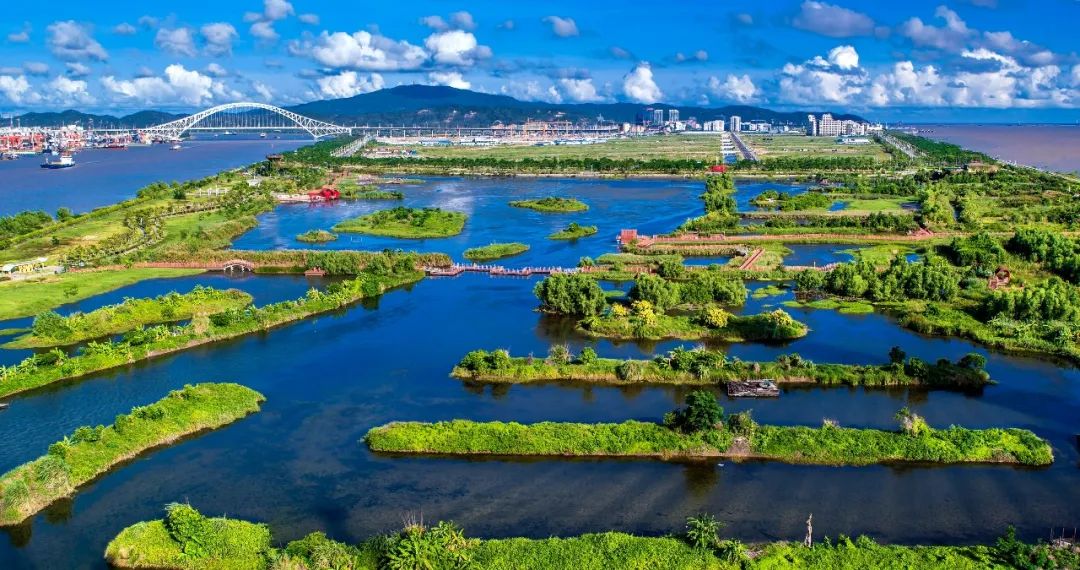"We can build houses like cars and change our production methods through intelligent technology to reduce construction waste and achieve pollution and carbon reduction." A new development model is taking shape in the Guangdong-Macao Deep In-Depth Cooperation Zone in Hengqin.

According to a plan issued by Guangdong, by 2025, the energy efficiency level of newly constructed residential buildings in the Cooperation Zone will increase by 30%, and the energy efficiency level of newly constructed public buildings will increase by 20%.
Since its inception, the Cooperation Zone has advocated for the concept of ecological priority in its development and construction. Currently, the Cooperative Zone has achieved good results in green and low-carbon development. A preliminary ecological island has emerged, with substantial improvements in water quality, air quality, and other ecological factors. The environment is beautiful, and the carbon emissions per unit of GDP are much lower than the majority of cities in the Guangdong-Hong Kong-Macao Greater Bay Area.
Under the Carbon Peaking and Carbon Neutrality strategy, the technical basis for low-carbon development and good natural environment are valued by many businesses. In the park of the Southern Power Grid Company in the Cooperation Zone, a tall, spacious, and bright building is conspicuous. Its roof is covered by a distributed photovoltaic power plant with an installed capacity of 160 kWt. Recently, the energy management system of this near-medium-sized zero carbon building has started operation and passed its acceptance test.

Li Jianbin, acting deputy director of the Innovation and Development Division of the Financial Development Bureau of the Cooperation Zone, said that promising businesses in the field of green technology, including intelligent energy systems, distributed energy research and development, and green building application technology, can enjoy a 15% preferential corporate income tax policy.
In addition, the Overall Plan for the Construction of the Guangdong-Macao Deep In-Depth Cooperation Zone in Hengqin requires the zone to create a livable and business-friendly living environment similar to that of Macao. How to create a green and low-carbon city has become a topic of focus for both regions to achieve integration and connectivity.
On April 30, nearly 30 Macao environmental science experts, scholars, advocates for sustainable development, and representatives of associations came to the Cooperation Zone, visited the demonstration sites of waste separation communities and waste sorting centers, and had an in-depth exchange on building a green and low-carbon city construction.
"By reusing kitchen waste resources and achieving ecological recycling, the Cooperative Zone replenishes nature, promotes the renewable resources industry to form a new economic growth point, and connects with nature, which is in line with the circular economic process of sustainable development. It provides a useful demonstration for the construction of a green and low-carbon city in Macao," said Professor Liu Chengkun, Director of the Institute for Sustainable Development of the Macau University of Science and Technology.
At present, the Bureau of Urban Planning and Construction of the Cooperation Zone is carrying out the construction of a carbon neutral pilot demonstration site in a stable and organized manner. It is striving to create a Hengqin model of a carbon neutral pilot demonstration.
Editor | Olivia, Steven, Fanny
















